ORNL’s partners in the Lonestar State cover a range of academic institutions and high-tech innovators. The laboratory has licensed technology to NovaCentrix, producer of conductive inks for printed electronics and semiconductor manufacturing, and has conducted research on behalf of Zyvex Labs, developer of atomically precise manufacturing tools. ORNL holds cooperative research and development agreements with Hybrid Manufacturing Technologies, which develops hybrid industrial machines that combine additive manufacturing with machining, and MTPV Power Corporation, which makes semiconductor chips that convert heat directly into electricity, among others.

ORNL’s user facilities offer a diverse set of tools for experiments across a range of fields, including biology, materials and energy sciences, physics, engineering, and chemistry. Learn more about ORNL’s user facilities. Data reflects fiscal year 2020 except for scientific publications, which covers 2016–2020. Partner stories reflect work conducted from 2016 to present.

Stomach cancer kills 754,000 people globally each year, and osteoporosis, which causes weakened bones, affects over 200 million people worldwide. An international team of researchers, including researchers at the Baylor College of Medicine in Texas, used ORNL’s research reactor, the High Flux Isotope Reactor, to build an atomic model of an enzyme that plays a significant role in both diseases. If scientists can better understand how the enzyme’s atoms are arranged, they can uncover how the enzyme interacts with other molecules and, in turn, help drug makers design better drugs to treat these diseases.
ORNL’s Manufacturing Demonstration Facility and the laboratory’s cybersecurity science and digital manufacturing expertise will be used to accelerate protection for US manufacturers. These efforts are supported by the Cybersecurity Manufacturing Innovation Institute, a public-private partnership led by the University of Texas at San Antonio.
Learn more about national security science at ORNL.
ORNL new release: “ORNL to Apply Communications Security, Digital Manufacturing Expertise to New DOE Cybersecurity Manufacturing Innovation Institute”

Rice University in Houston receives ytterbium-171 produced at ORNL for use in research on metals and superconductors. Outcomes could lead to new technologies in computing and other areas.

ORNL provides both iron-58 and zirconium-92 to Texas A&M University in College Station for biological research.
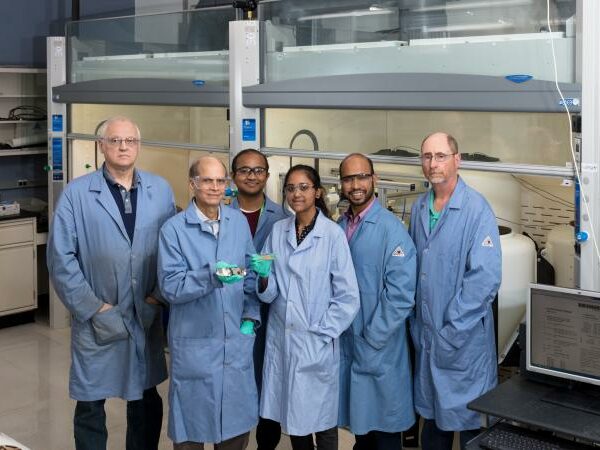
Momentum Technologies, a Dallas-based materials science company, licensed an ORNL process for recovering cobalt and other metals from spent lithium-ion batteries. As more consumers embrace electric vehicles, developing efficient technologies to capture and reuse critical elements from spent batteries will be important to maintaining adequate supply without dependence on costly overseas mining and processing of critical materials.
Learn more about physical science at ORNL.
ORNL news release: “From Trash to Treasure: Electronic Waste Is Mined for Rare Earth Elements”
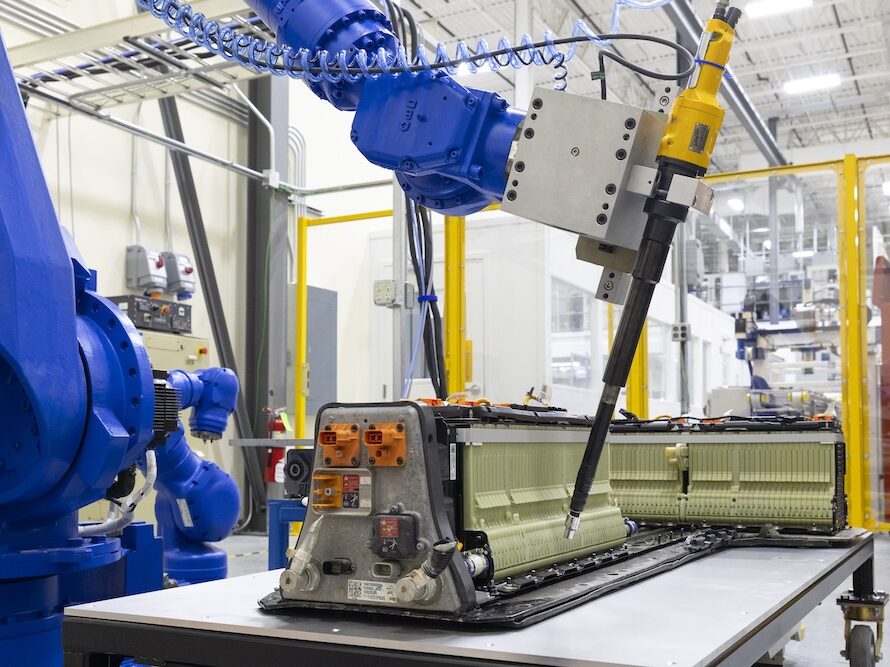
ORNL is collaborating with Plano-based Toyota Motor North America Inc. to deliver an automated robotic disassembly process for used battery packs for application in a US plant. The project will provide advanced diagnostic tools, classification protocol, and refabrication methods for turning used electric vehicle batteries into new energy systems. The collaboration will create a viable, commercial-ready circular supply chain solution that will also enable greater independence from foreign supply chains for critical materials. Other project partners are the National Renewable Energy Laboratory and Waygate Technologies.
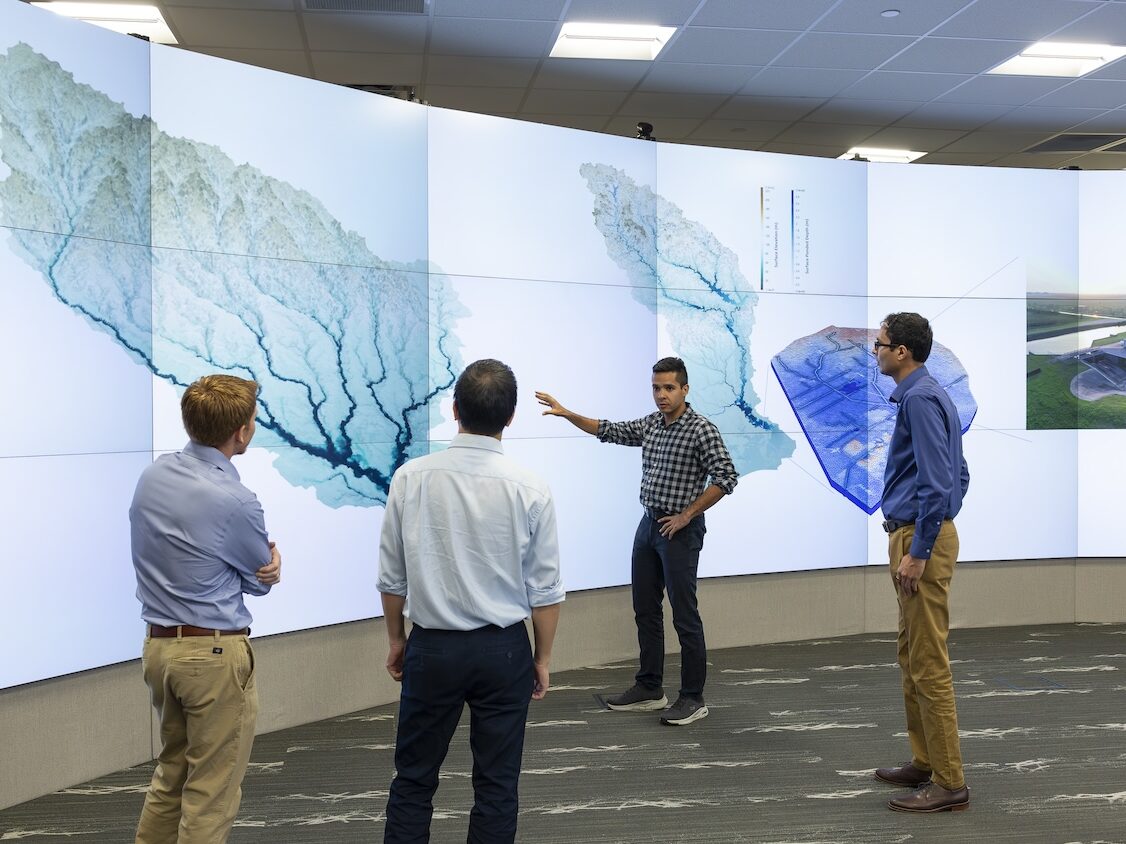
In partnership with the University of Texas at Austin and other entities, ORNL scientists are modeling key waterways in the urban coastal region of Beaumont and Port Arthur, Texas, to identify vulnerabilities and potential solutions for risks such as flooding. The area is home to critical US energy infrastructure, including the world’s largest oil refinery, major oil and gas pipelines, the Sabine Pass liquified natural gas (LNG) terminal, and the Port Arthur LNG terminal, which is currently under construction. Other partners in the project are Texas A&M University, Lamar University, and Prairie View A&M University.
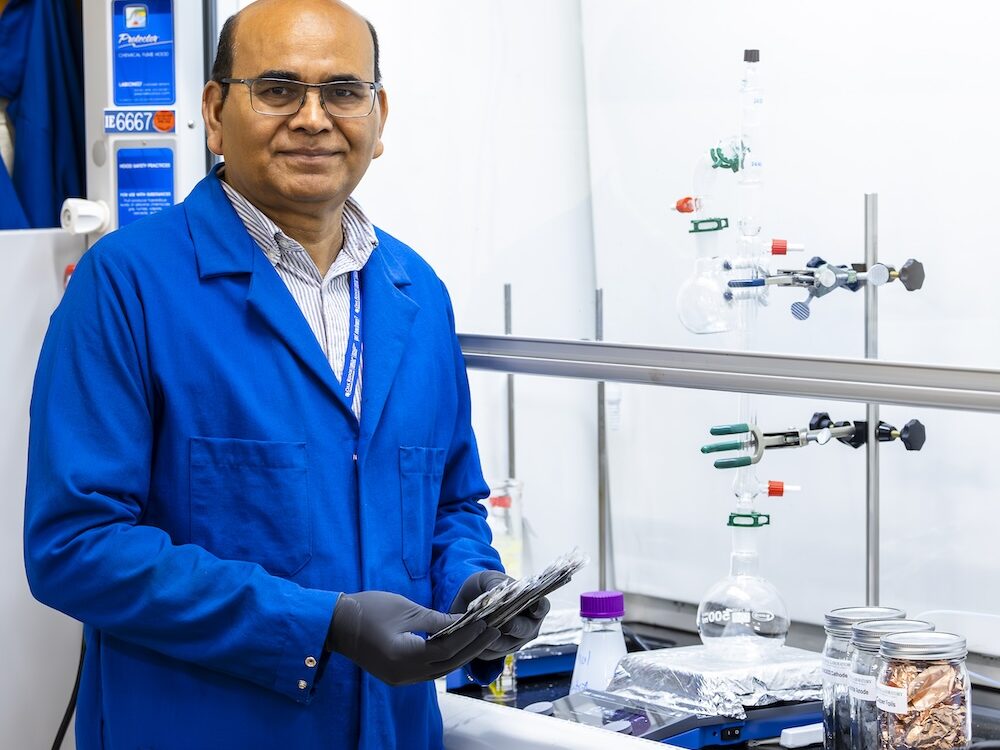
ORNL helped industry partner Austin Elements Inc. in Houston, Texas, develop a process for separating and recycling electrolyte components from used lithium-ion batteries like those in electric vehicles, converting environmentally hazardous materials into value-added products. ORNL researchers evaluated the electrochemistry of the recycled components and scaled up the recycling process from laboratory to pilot level.
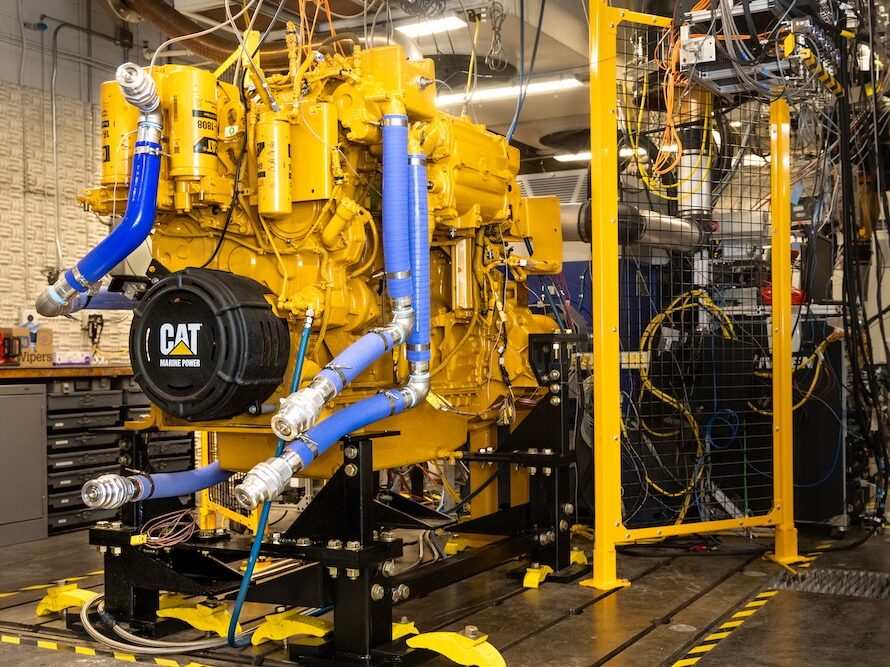
ORNL partnered with Caterpillar Inc., based in Irving, Texas, to explore methanol as a high-efficiency fuel for marine engines to enhance energy resilience in the hard-to-electrify maritime sector. Through a cooperative research and development agreement, or CRADA, researchers are developing and testing combustion strategies on a Caterpillar-modified engine at DOE’s National Transportation Research Center. The project supports DOE and US Maritime Administration goals to improve fuel efficiency and advance sustainable solutions for heavy transportation. Learn more about energy research at ORNL.
For more information, contact [email protected].
